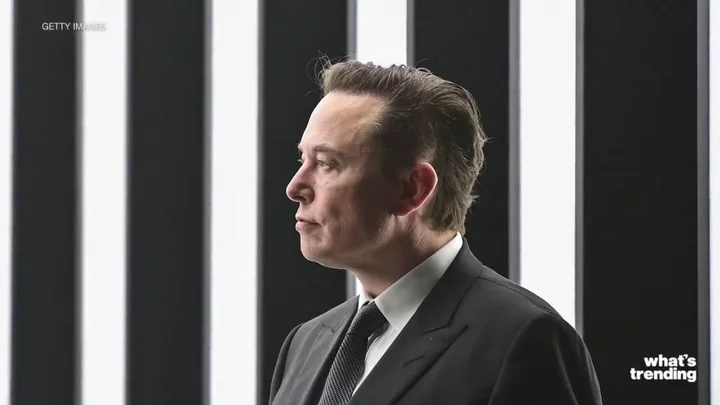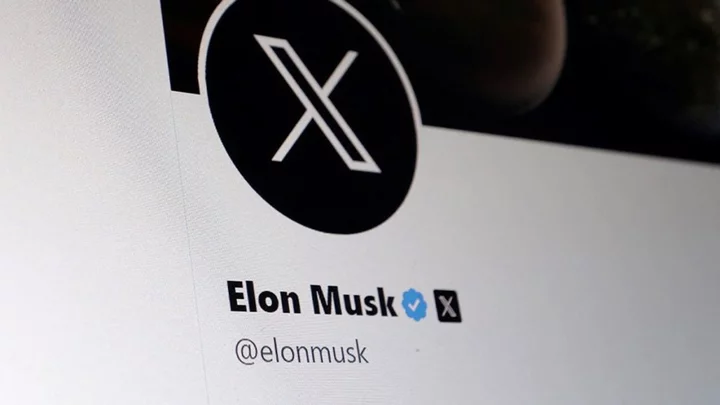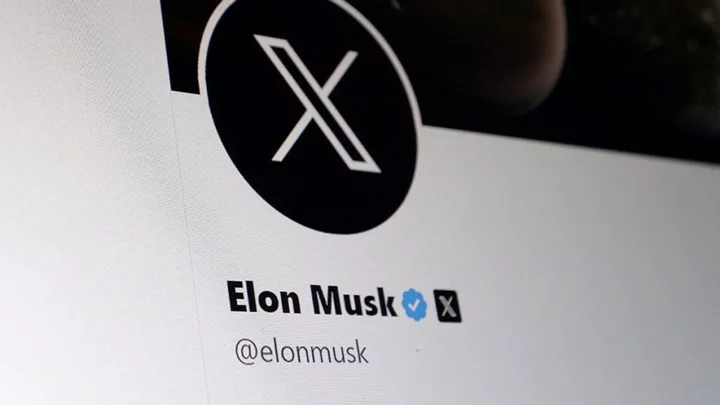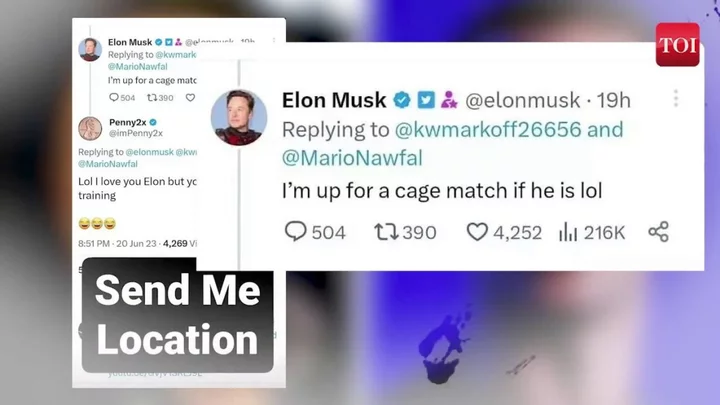
Experts have pinpointed exactly when society will collapse
A prediction about when society is most likely to collapse, made by scientists in the 1970s, has resurfaced – and it looks pretty bleak. Scientists at the Massachusetts Institute of Technology (MIT) used a computer to model patterns like population, natural resources and energy usage. The study, published by Club of Rome, picked out when these factors could hit “limits to growth”, which they said could lead to the downfall of modern life as we know it. They think we’ve got fewer than two decades left, with collapse due in 2040. Gulp. Sign up to our free Indy100 weekly newsletter At the time, the report wasn’t given much credence. But a similar study was carried out in 2009, and came up with similar results. Published by American Scientist, the more recent study found that the model’s results were “almost exactly on course”. "It is important to recognise that its predictions have not been invalidated and in fact seem quite on target. We are not aware of any model made by economists that is as accurate over such a long time span," the study said. And to make matters worse, Dutch sustainability researcher Gaya Herrington concurred with the prediction in 2021. Speaking to The Guardian, Herrington said: “From a research perspective, I felt a data check of a decades-old model against empirical observations would be an interesting exercise.” Herrington found that data aligned with the predictions made back in 1972, which had a worse case scenario of economic growth coming to halt at the end of this decade, and collapse around 10 years later. Thankfully, there was a reason to be cheerful too. She added: “The key finding of my study is that we still have a choice to align with a scenario that does not end in collapse. "With innovation in business, along with new developments by governments and civil society, continuing to update the model provides another perspective on the challenges and opportunities we have to create a more sustainable world.” Have your say in our news democracy. Click the upvote icon at the top of the page to help raise this article through the indy100 rankings.
2023-08-14 19:20

Former Elon Musk colleague reveals Twitter boss ‘seems quite lonely’
It’s lonely at the top – just ask Elon Musk’s former colleagues. The Twitter owner tells the same jokes and anecdotes “over and over” and “seems quite alone,” according to a former senior executive at the company. Esther Crawford, who went viral last year after being pictured sleeping on the floor of Twitter’s office while trying to meet a tough deadline set by Musk, shared her thoughts in a post on the platform which was recently renamed X. Sign up to our free Indy100 weekly newsletter Crawford joined Twitter when it bought her startup in 2020, well before the billionaire took over the social media platform in a $44bn deal last year. The former head of product development, who was sacked in February as part of a round of 200 layoffs, said: “Elon is oddly charming and he's genuinely funny. He also has personality quirks like telling the same stories and jokes over and over. “The challenge is his personality and demeanour can turn on a dime going from excited to angry. “Since it was hard to read what mood he might be in and what his reaction would be to any given thing, people quickly became afraid of being called into meetings or having to share negative news with him.” She said Twitter employees feared being called into meetings with him or having to deliver bad news. “At times it felt like the inner circle was too zealous and fanatical in their unwavering support of everything he said.” “Product and business decisions were nearly always the result of him following his gut instinct, and he didn't seem compelled to seek out or rely on a lot of data or expertise to inform it. “I saw a person who seemed quite alone because his time and energy was so purely devoted to work.” Meanwhile, Musk appeared to put more faith in random feedback and Twitter polls than in his employees who were working to troubleshoot problems. She said: “His boldness, passion and storytelling is inspiring, but his lack of process and empathy is painful.” However, she didn’t pull any punches about the previous management either, calling it “bloated” and “soft and entitled” where “teams could spend months building a feature and then some last-minute kerfuffle meant it'd get killed for being too risky.” Musk recently killed off the iconic bluebird Twitter logo, replacing it with a white X. He has said he wants to create a super-app inspired by China’s WeChat which would offer messaging and payments as well as social media. That vision may be difficult to make a reality, after the collapse of the platform’s advertising business as marketers soured on Musk’s decision to fire thousands of employees and dial down its content moderation efforts. Have your say in our news democracy. Click the upvote icon at the top of the page to help raise this article through the indy100 rankings.
2023-07-28 17:27

Proof that Twitter's new logo is impossible to differentiate between porn sites
Elon Musk’s decision to change the Twitter logo to an X has been mocked for looking like a porn site, with pictures to prove it. Since his takeover of the social media platform Twitter, Musk has made multiple significant changes that have left users baffled. Some changes affect the way users are able to interact with others, based on their verified (i.e. paid for) status, while other changes are more superficial. The latest idea has seen Musk change the iconic blue bird logo of 15 years, replacing it with a white X on a black background that many have compared with porn sites. Porn sites such as XVideos and XNXX feature logos that are variations of the letter X and comedian Jesse McLaren pointed out how true the comparisons are after sharing a screenshot of a Google Chrome page with six tabs all bearing logos that are very similar. Sign up to our free Indy100 weekly newsletter McLaren wrote: “These are all porn except one. That one's Twitter.” The tweet has been viewed over 4 million times and sparked a conversation about the design of the logo. Someone commented: “It’s the fact that if I had to guess which one out of these was a porn site, my immediate first guess would be the Twitter one.” Another said: “I have a feeling that this will become an interesting case study in marketing and branding classes.” “Unethical, degrading, and perverted. Also there are some porn sites there I guess,” one Twitter user joked. Someone else argued: “Twitter is a porn site too.” Industry experts have cast doubt over Musk’s rebrand decision, particularly at a time when other competitors such as Meta’s Threads have entered the market. Mike Proulx, research director at the analysis firm Forrester, told the Guardian: “By changing Twitter’s app name, Elon Musk will have singlehandedly wiped out over 15 years of a brand name that has secured its place in our cultural lexicon.” He continued: “This is an extremely risky move, because with ‘X’, Musk is essentially starting over while its competition is afoot.” Have your say in our news democracy. Click the upvote icon at the top of the page to help raise this article through the indy100 rankings.
2023-07-25 19:23

Does Microsoft own the letter 'X' trademark?
We didn’t think it was possible, but Elon Musk’s tenure at Twitter took an even stranger turn this week after he rebranded the social media platform to “X” out of the blue. It turns out Musk has been obsessed with naming things after the letter all his career, but it still came as a big surprise that he decided to change the name of an internationally recognised brand overnight to something that sounds more like a porn site or gentleman’s club. The logo is a pretty generic graphic, which replaced the famous blue Twitter bird after Musk crowdsourced ideas from users last weekend. It’s left people with more questions than answers at this point – one of them surrounds the issue of Microsoft and potential disputes over the letter “X” as a trademark. “X” is pretty common in names of companies and organisations and the likes of Meta and Microsoft reportedly have intellectual property rights around the letter “X”. Sign up to our free Indy100 weekly newsletter In fact, as Reuters reports, the likelihood is that Twitter – now "X" – could well face legal action over the name change. "There's a 100 per cent chance that Twitter is going to get sued over this by somebody," said trademark attorney Josh Gerben. According to Gerben, there are close to 900 active U.S. trademark registrations surrounding the letter “X”. Microsoft does indeed have an X trademark which it’s held since 2003. However, it’s related to communications about its Xbox video game system. Meta Platforms also owns a trademark for an “X”, which is related to software and social media. According to Gerben, the two companies are unlikely to sue over the Twitter name change unless they believe the move encroaches on their brand equity. Douglas Masters, who is a trademark attorney at law firm Loeb & Loeb, said [via Reuters]: "Given the difficulty in protecting a single letter, especially one as popular commercially as 'X', Twitter's protection is likely to be confined to very similar graphics to their X logo. "The logo does not have much distinctive about it, so the protection will be very narrow." Social media user Keith Edwards posted on the topic by uploading a screen grab of Microsoft’s 2003 patent for “X”, writing: “Microsoft owns the trademark for X. This is just too good.” A community note was added to the post which read: Microsoft only holds this trademark for videogame-related services; this wouldn't affect Twitter. “However, Meta holds the ‘X’ trademark for ‘online social networking services... social networking services in the fields of entertainment, gaming and application development…’” Have your say in our news democracy. Click the upvote icon at the top of the page to help raise this article through the indy100 rankings.
2023-07-25 17:19

Why trolling the likes of Andrew Tate is actually earning them money
Since Elon Musk’s takeover of Twitter, many controversial users who were previously banned from the platform have been allowed back on and are flourishing. Users such as Andrew Tate have regained a platform to spout his harmful views to millions of users. But, while it may feel satisfying to troll such users, engaging with their tweets actually earns them money. Here’s why: Twitter recently announced it was paying out thousands of dollars in advertising revenue to users to “benefit” from their high engagement on tweets, earning more money the higher their engagement is. As part of Twitter’s Ad Revenue sharing program, users require “5M+ Tweet impressions in each month for the last 3 months”. Sign up to our free Indy100 weekly newsletter On Thursday (13 July), some eligible users began receiving notifications of how much money they would receive. The highest earner, Dogecoin co-founder Billy Markus, known online as Shibetoshi Nakamoto, earned $37,050. Tate also revealed in a tweet that he earned $20,379 from ad revenue generated in the reply threads under his posts. The money comes from the ad revenue generated in their replies below the content they post on the platform, and is paid out via the Stripe account that the user registered for creator subscriptions with. Twitter staffer, Patrick Traughber, said: “Excited to start sending our first payments to creators for ads revenue sharing today. “Creators are the lifeblood of this platform, and it's great to see so many creators I follow getting paid today. The program will be expanding soon—more to come!” The cash payouts come just a week after Meta launched its rival text-based platform, Threads. Have your say in our news democracy. Click the upvote icon at the top of the page to help raise this article through the indy100 rankings.
2023-07-14 19:45
